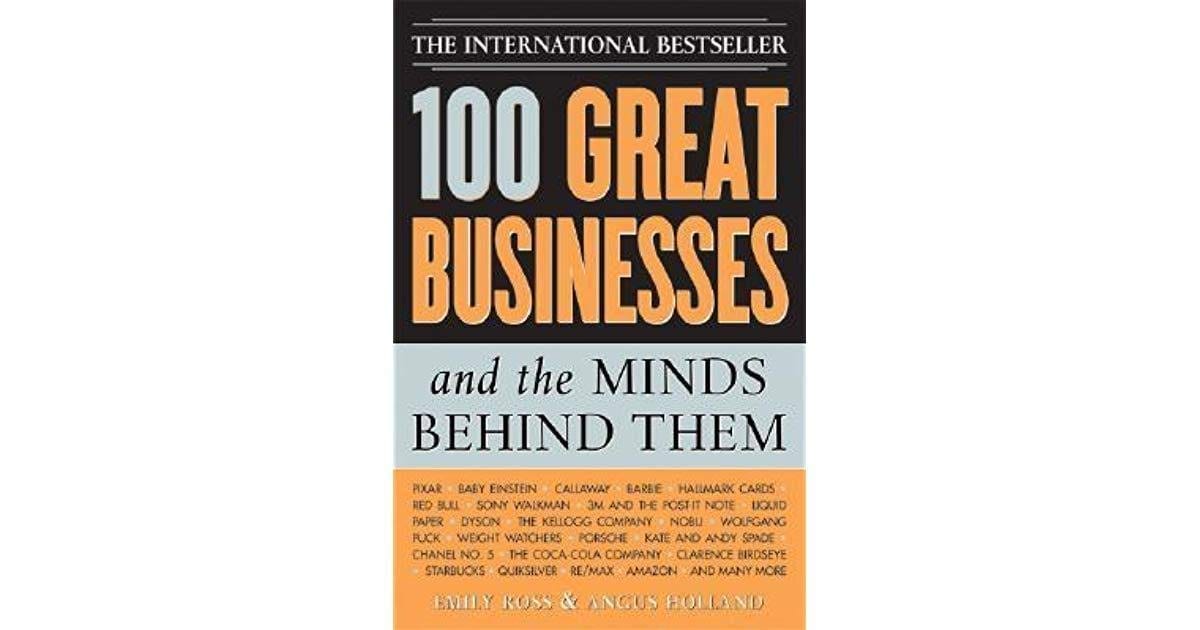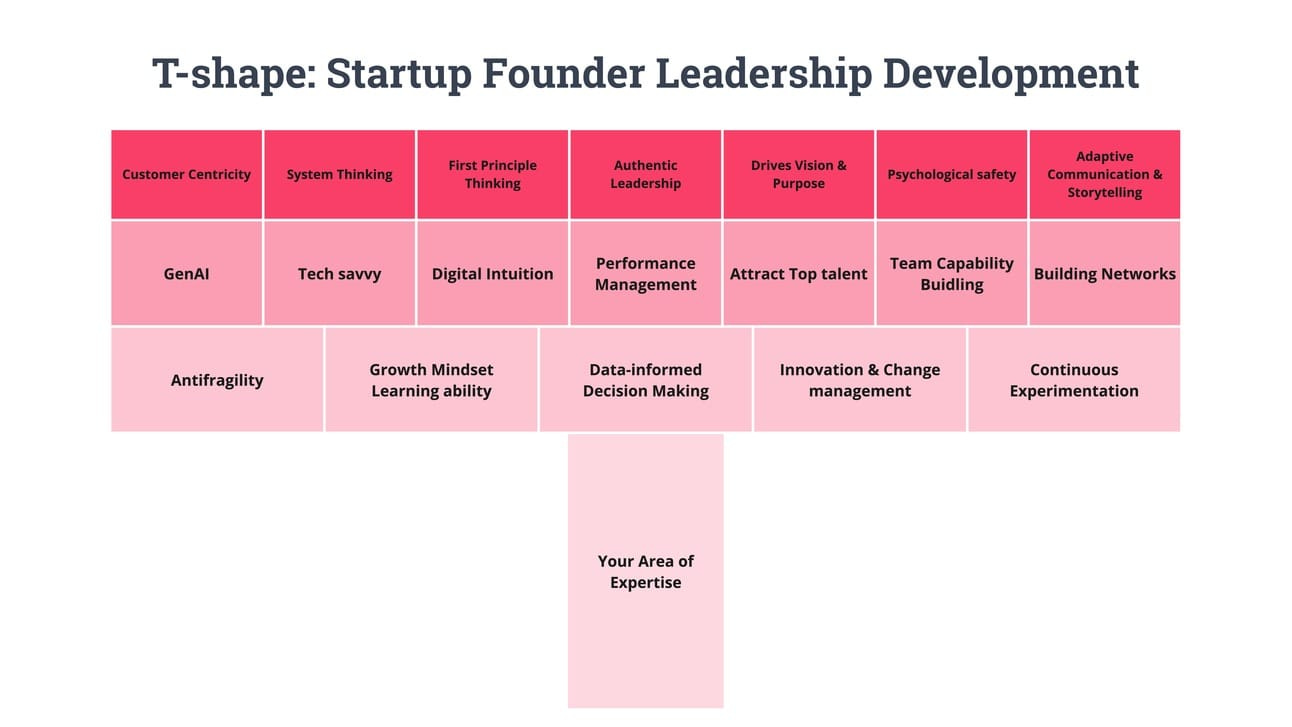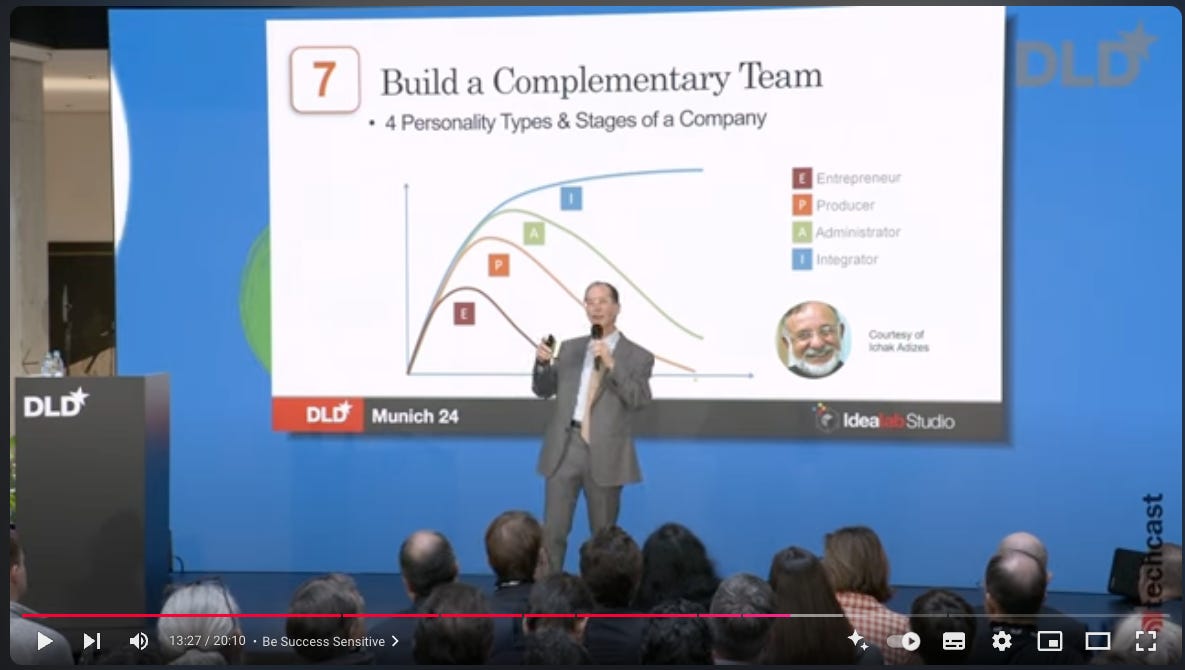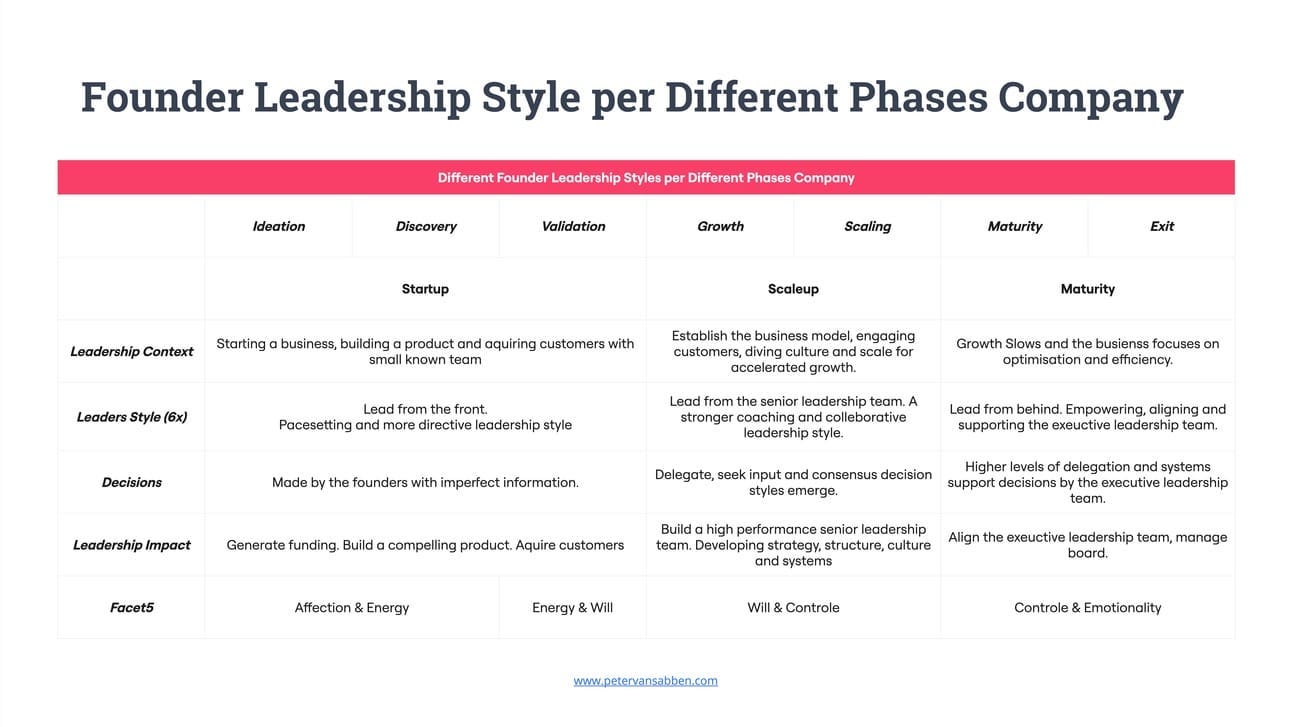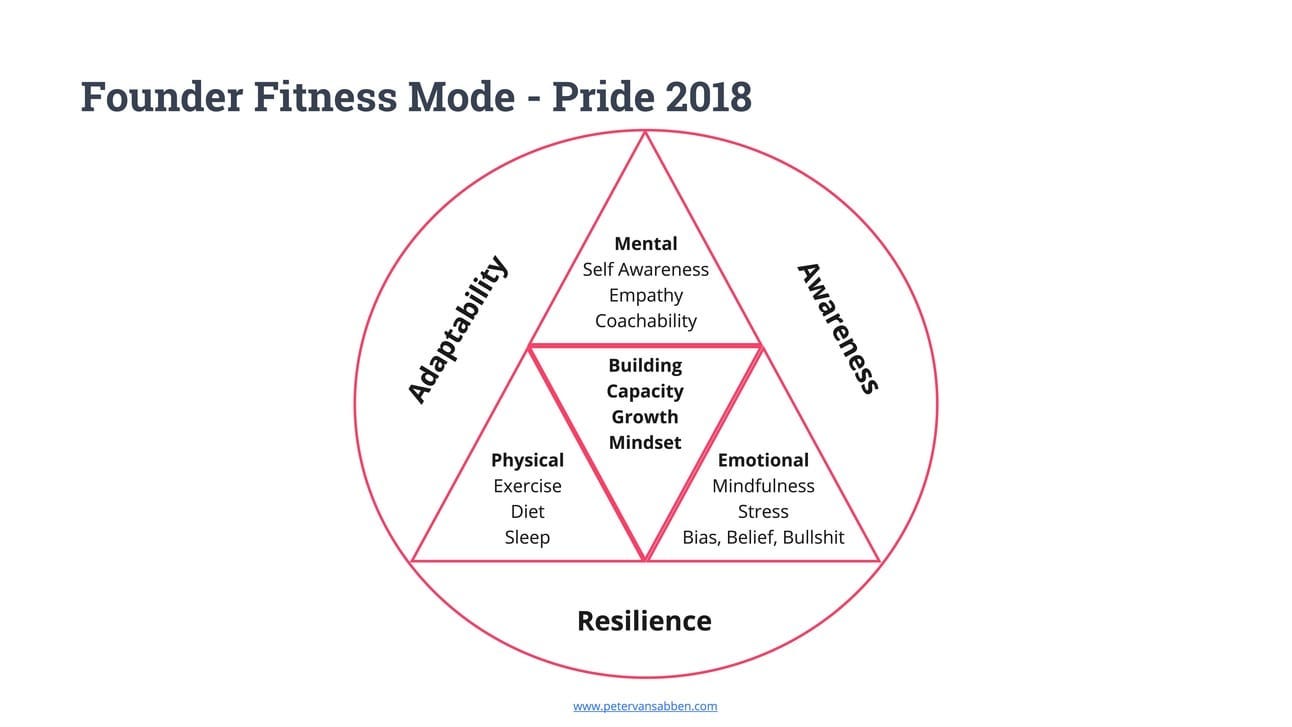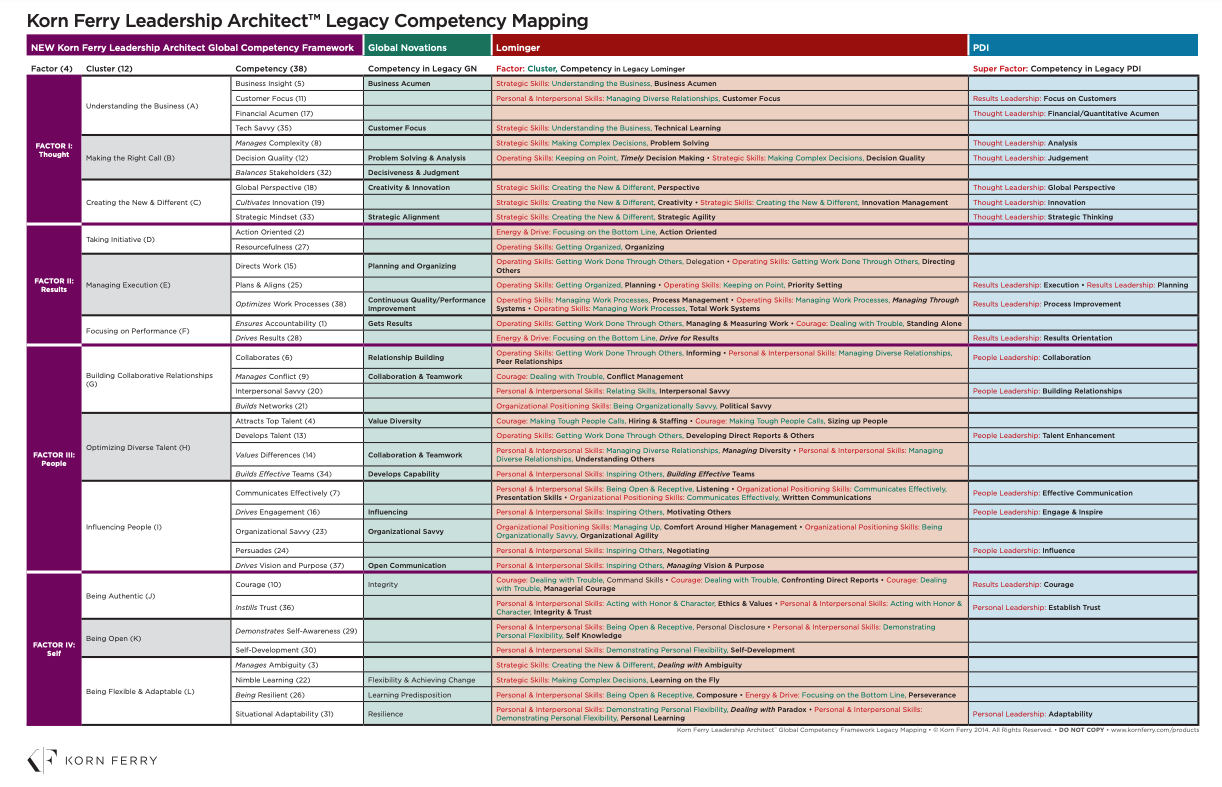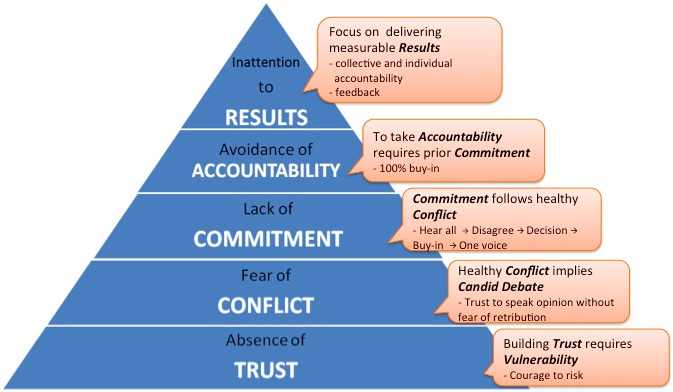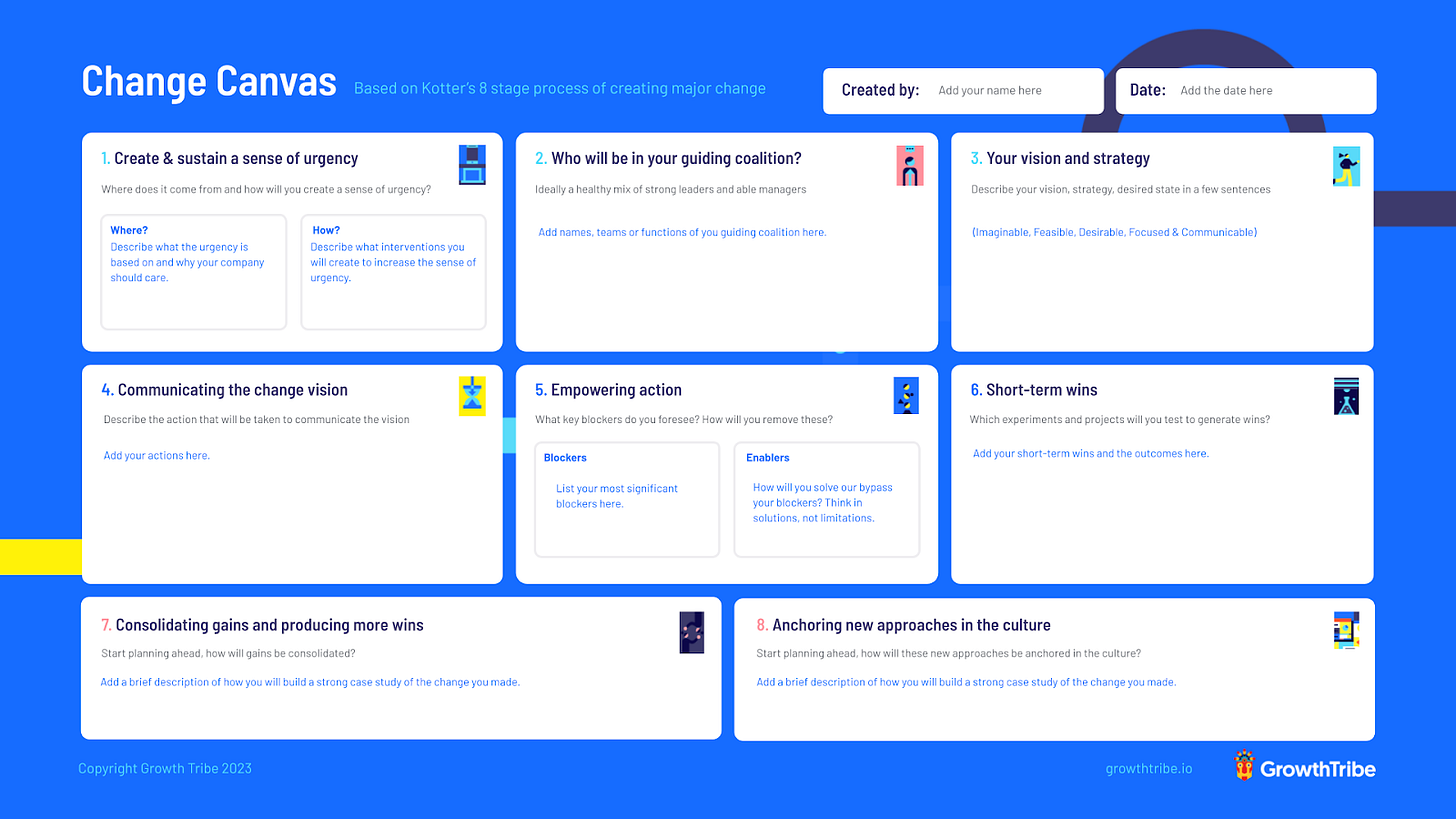The Ultimate Guide to Startup Founder Leadership Development.
Practical Frameworks, Tools and Personal experience.
I love learning. Even more, I love startup founder leadership development.
It all started with the book “100 Great Businesses and the Minds Behind Them”, which inspired me to become an entrepreneur when I was still a teenager.
After my studies, I had the incredible opportunity to join a two-year Management Traineeship at Red Bull HQ in Salzburg. It was two years of intensive management training, complemented by a Master’s degree in Neuromarketing and studying across more than eight countries—a once-in-a-lifetime experience.
Following that, I spent two years immersed in the VC and Startup Accelerator world in London, where I observed over 500 startups going through bootcamps and learned about various founder profiles.
Fast forward to today: I co-founded Growth Tribe, where we’ve trained over 38,000 professionals, placed more than 450 Growth Hackers at scaleups, and launched the Digital Leadership Course in 2021.
My First Realisation:
“Different stages of a company require different leadership styles. As a founder and leader, you must continually reinvent yourself.”
Over the years, I’ve noticed increasing awareness—among both founders and investors—that personal leadership development is often underdeveloped, unstructured, and highly ad hoc. After 15 years of building Europe’s tech ecosystem (arguably since startups and investments started gaining serious traction around 2010), best practices are finally beginning to emerge.
The Second Realisation:
“Most problems are not unique. Founders often think their challenges are one-of-a-kind—they are not. Future challenges can be anticipated. By understanding your current stage, you can tackle and prepare for key leadership hurdles before they arise, instead of reacting in crisis mode.”
Failing to anticipate these challenges can derail your company, creating significant operational debt. This debt often leads to transitions, pivots, or turnarounds, which can drain your company’s energy, time, equity, and resources—or worse, lead to its failure.
Why Is This So Important?
Insight: Founders are the driving force behind a startup’s values, long-term vision, strategy, talent acquisition, team development, and daily decision-making.
According to the 2023 Global Entrepreneurship Monitor report, 70% of high-growth startups identified leadership and management skills as critical success factors.
This essay is designed for both startup/scaleup founders and investors. It provides practical frameworks and actionable tests to help you take a data-driven approach to personal leadership development while recognising that different company stages demand different leadership styles. The goal is to improve your judgement: critical decision making under stress, balance short-term and long-term impact and balance your resilience.
Some insights are drawn from my personal experiences, while others are timeless best practices that remain as relevant today as ever.
My Research: Founder Profiles, Personalities and Startup Founder Leadership Development
Startup Founder Leadership Development
1. First Things First: First-Principle Thinking, Biology, and Psychology Flaws.
Changing people is hard.
Our brains haven’t evolved enough to fully overcome inherent biological flaws, particularly cognitive biases like delayed gratification, urgency bias, and cognitive overload.
Learning is comparable to healthy eating and exercising: the benefits are long-term and not immediately visible. It’s not something you can buy—it must be earned through consistent effort.
Neuroscience: Why Is It Hard to Change Someone’s Mind?
More insights into this challenge can be found here: Rainmaker1973 on X (Twitter).
Personality Traits of Founders
One of the main difficulties lies in personality traits common among founders:
Overconfidence: Founders are often highly confident and willing to take significant risks—traits necessary to start a company.
Disagreeableness: Many founders also score high on disagreeableness, which means they’re more likely to challenge norms and push boundaries.
When these traits combine, the challenge emerges:
How do you balance belief in your vision and strategy with being open to feedback?
When should you trust your instincts, and when should you listen to coaches, mentors, or investors?
Paul Graham wrote an excellent blog post on this topic in July 2024: “The Right Kind of Stubbornness.” It explores the importance of knowing when to stay true to your vision and when to be coachable.
The Leadership Challenge
Many first-time founders face blind spots, often described by the Johari Window framework. Without structured personal leadership development, founders may struggle to prepare for the next stages of their company, leading to delays, derailments, or even failure.
Johari Window Framework
Additional Resources on Founder Personalities, Mindsets, and Behaviours
Marc Andreessen and Andrew Huberman also delve into the intersection of personality traits, risk-taking, and our biological limitations. Their insights provide valuable context for understanding the unique challenges founders face.
2. Founders Are Wired Differently: 6 Distinct Founder Profiles.
Extensive research published in Nature, based on a study of 21,187 startups, analysed founders using the Big Five personality traits (Agreeableness, Conscientiousness, Extraversion, Emotional Stability, and Openness) across 30 dimensions. This research identified six distinct founder personality types.
The Key Research Questions:
Which personality traits characterise founders?
Does the diversity of personality types within founder teams influence startup success?
The Six Founder Types:
Fighters
Operators
Accomplishers
Leaders
Engineers
Developers
6 Founder Types
Article Nature: : https://www.nature.com/articles/s41598-023-41980-y
3. Different Stages of a Company = Different Leadership Styles.
Research shows that startups go through distinct stages, and as a founder and leader, you must continuously reinvent yourself to adapt.
Ichak Adizes (https://en.wikipedia.org/wiki/Ichak_Adizes) a global management consultant, academic, and author known for contributing to organisational development and corporate lifecycles. Ichak offers a powerful mental model for understanding the lifecycle of a company and the different roles required at each stage. Although it’s an older framework, it remains highly relevant today.
Lifecycle of Companies
More information Lifecycle of companies: https://adizes.lv/lifecycle/gogo/
For early-stage startups, I highly recommend watching Ichak Adizes explain the various lifecycle stages and the roles needed at each phase. His insights are invaluable for founders navigating the complexities of growth.
Adizes identified four key personality types necessary for the different stages of a company’s evolution.
Bill Gross: The Real GOAT.
Bill Gross, the founder of Idealab, has achieved incredible feats in the startup world. He also leverages Ichak Adizes’ framework of four personality types to align leadership needs with the specific stages of a company’s lifecycle.
4 Personality Profiles - Leadership
See his video explaining the 4 personality profiles here: 10 Crucial lessons from success from 50 years of practising innovation by Bill Gross - Founder Idealab
You can also use the Steve Black phases and use the Facet5.
Phase 1: Customer Discovery: Affection & Energy
Phase 2: Customer Validation: Energy & Will
Phase 3: Customer Creation: Will & Control
Phase 4: Company Building: Controle & Emotionality
4. Startup Founder Leadership Transition
I’ve made my own table for the Leadership transition for founders.
Example Leadership Transition for founders during different stages of the company.
Founder Leadership Styles per Different Phases Company
5. The Founder Fitness Model
The founder needs to be authentic, trustworthy, curious, focused, team-player, open to feedback, adapt to changes, quicker learner and customer oriented. A true growth mindset.
The founders who have high financial, human and social capital are more likely to start and scale a business than those who lack such resources.
It’s not only about personal growth. It’s also about physically, mentally and emotionality fit.
45% of founders told us they thought their mental health was ‘bad’ or ‘very bad’ at the moment. 85% said they’d experienced high stress in the past year, while 75% said they’d had anxiety in the same period. Article.
Founder Fitness Mode
Founder Fitness Mode
6. My Personal Learnings around Startup Founder Leadership Development.
Before I share tools and frameworks that have helped me, here are my learnings about founder leadership development:
True Leadership: True leadership is about authentic leadership—finding your own strengths and leveraging your weaknesses. Don’t blindly follow the ‘Founder Mode’ BS.
Intelligent Honesty: You need to fail fast to learn. This happens through experiments that drive innovation. If you are truly data-informed and okay with failing, relearning, and unlearning, you’ll change your mind often and adjust. That’s what I call intelligent honesty—as opposed to believing your own BS or lying to yourself or others just to be right. We’re in the game of truth-seeking, not the game of being right (ego).
Lack of Focus: Many startup founders are like ‘plants’—constantly sprouting new ideas. Before you know it, you have too many ICPs, too many products, and you’re spread too thin. Focus! Focus! Focus! Learn to say No. No. No.
High Self-Awareness: Founders must develop keen awareness of their thoughts, feelings, and behaviours on a moment-to-moment basis, sometimes called mindfulness. This allows them to manage themselves and others more effectively.
Learning Ability: Are you skilled enough to hire senior experts (CFOs, CMOs, COOs) and recognize when they’re not being truthful or when they’re wrong? It surprises me how little time some founders spend on deliberate learning or using mental models. Personally, I dedicate at least eight hours a week to structured learning with feedback, goals, and deadlines.
Friends & Family Trap + Change Leadership: Many founders hesitate to fire early employees or people who’ve become ‘friends.’ But remember, you’re not a family—you’re a sports team. If people don’t perform or hold the team back, you need to change or fire them. “What got you here won’t get you there.” At Growth Tribe, I’ve changed the leadership team three times in eight years. Different stages require different teams. Don’t sweat it—replacing leaders is often better for both the company and the individual.
Attracting Top Talent: Something I learned at Red Bull—I’m good at hiring and spotting talent. Through our Growth Hacking Academy, we placed 450 growth hackers at scaleups from over 15,000 applications. My hiring process is long, intense, data-driven, and culture values-based.
Financial Literacy: It’s crucial to understand business intelligence and key financial indicators. A simple financial course for startups can make a big difference.
Improve Accountability: The primary difference between a startup and a growing scaleup often comes down to a lack of accountability within the team. This is a big one to get right.
Hacks and Short-Term Thinking: Hacks and shortcuts will accumulate and eventually derail or slow your success. Maintain a long-term vision and don’t compromise on critical decisions. It typically takes 8+ years for a startup to succeed—think long-term.
Normal Problems vs. Abnormal Problems: Understand the difference between the two. For more on this, check out my blog post: “What is Operational Debt for Startups and Scaleups?”
Build and Maintain a Network: Be resourceful when it comes to funding, talent, partnerships, advisors, etc. The challenge isn’t just building a network but maintaining those relationships.
Effective Communication: What isn’t clear won’t get done. Have a clear goal, one strategic intent, and measurable KPIs—otherwise, the work won’t happen. Over communicate: every week, repeat your message to everyone.
Pivots & Wartime Leadership: As a CEO, I’ve had to lead through both peace and war. At Growth Tribe, we pivoted three times—adapting to COVID, the introduction of the STAP Budget, and its sudden exit. Leading 80+ employees through a 180-degree pivot is no small feat. We faced an 80% revenue drop, no offline training during COVID, and operated in 6+ countries. Wartime demands speed and top-down leadership, and I thrive in that mode. Not all founders can handle both peace and war, so knowing your strengths is critical.
Stepping Away: Knowing when to step away takes courage. Startups thrive with the right people at the right stages, and sometimes that means moving on. Many of the leaders I admire have built multiple companies and great teams. It’s okay to move on. Plan your exit with care, stay professional, and honour your values—because leaving well is as important as building well.
7. Practical Startup Founder Leadership Frameworks
Tool: Belbin - Team roles
Tool: Korn Ferry - 38 Leadership Competencies
Tool: TT38 Talent Test
Framework: Five Dysfunctions of a Team
Framework: Brand the Change
Framework: 8 Step Change Model by John Kotter
Framework: Strategic Intent
Framework: Strategy Pyramid
T-Shape Young Digital Leadership
Belbin Team Roles:
The Belbin Team roles are 9 clusters of behavioural attributes identified as being effective in order to facilitate team progress + team building.
Building great teams is one of the most important tasks as a startup founder and leader. Belbin helps with hiring and how to build effective teams and put people in their strengths.
Resources:
Team roles: https://www.belbin.com/about/belbin-team-roles
Example individual team report: https://www.belbin.com/media/3213/individual-report-for-aliblue-sample-report.pdf
Example team report: https://www.belbin.com/media/q41htkzi/belbin-how-to-use-belbin-team-reports-2023.pdf
Korn Ferry - Leadership Architect - 38 Competences.
We’ve applied the Korn Ferry Leadership Architect to Growth Tribe and it’s a very practical leadership development framework to understand 38 competences that help to develop leaders.
Understand the 7 Signposts of potential:
And the 4 dimensions of Leadership & Talent.
And the overview of individual contributor to manager to leader:
And the overview of the Korn Ferry Leadership Architect - 38 Competencies.
Resources:
TT38 Talent Test
The TT38 Talent test out of Denmark, is a test that shows your personal values and what gives you energy and shows your ‘talents’.
Example profile:
Resources: https://talents-unlimited.dk/en/services/tt38-talent-test/
Five Dysfunctions of a Team
Patrick Lencioni's "Five Dysfunctions of a Team" model identifies key issues that can hinder team performance, which are particularly relevant for startups and scaleups. These dysfunctions are:
Absence of Trust: Team members conceal weaknesses and mistakes, hindering vulnerability and open communication.
Fear of Conflict: Lack of trust leads to avoidance of productive debates, resulting in veiled discussions and unresolved issues.
Lack of Commitment: Without open discussion, team members fail to buy into decisions, leading to ambiguity and detachment.
Avoidance of Accountability: Team members hesitate to hold each other responsible for their actions and performance.
Inattention to Results: Individual goals take precedence over collective success, fragmenting efforts and diminishing team cohesion.
Culture & Brand.
Founder Leadership development is not complete if you can’t build a great performing culture. Culture and Brand are really two sides of the same coin.
Creating a culture is hard.
It can be seen as soft.
Difficult to measure
It’s unique per company
Doesn’t pay off in the short term
But why does it matter?
Culture is recruiting as product is to marketing.
First principles of decision making
Align people inside the company
Stability & trust
Employees are your best brand ambassadors
Exclusion: what to do and what not to do
Retain right employees
High performing teams
Why invest in Brand?
Open hearts & wallets - people buy because of emotional reasons
Makes it credible
Makes it difficult to copy
Positioning: Competition is not doing the same
High barriers to entry
Price Premium
Shortcut psychology in purchase decisions
Better conversion for performance marketing
Great to watch:
Brian Chesky, Founder of Airbnb, and Alfred Lin, Former COO of Zappos and Partner at Sequoia Capital discuss how to build a great company culture.
Handy ultimate guide from Index Ventures about values, culture and hiring.
Or the Culture Handbook from GitLab
And the Brand Anatomy from Brand the Change is a great toolbox to help with your vision, values, mission and brand promises.
Resources: https://brandthechange.org/toolbox
How to Create Change:
Understanding Change Management is important skill for a startup founder. The Kotter’s 8 Step Change model can be beneficial for startups. It gives a clear structure, it focuses on leadership and helps with a product vision centric approach.
It’s a top-down approach, a bit linear, but still very useful to use when change is necessary.
8 Step Change Model by John Kotter - Growth Tribe - Digital Leadership Course
Creating the climate of change
1. Establishing a sense of urgency
2. Creating the guiding coalition
3. Developing a vision and strategy
Engaging & enabling the organisation
4. Communicating the change vision
5. Empowering broad-based action
6. Generating short-term wins
Implementing & sustaining the change
7. Consolidating gains and producing more wins
8. Anchoring new approaches in the culture
Canvas Of Change is helpful to make it clear on 1 slide for your team.
Change Canvas - by Growth Tribe
Strategy Intent - Art of Action
"The Art of Action" by Stephen Bungay is a great and simple book to explain the 8 step process to close the gaps between strategies, plans, actions and results.
“What can’t be made clear, will not get done,”
Old but still powerful.
Resource & book:
Strategy Intent
The Strategy Pyramid
Determining your startup strategy and connecting it to a meaningful purpose and effective execution is crucial for a startup—especially during the transition from startup to scale up.
As the company grows, it becomes even more important to establish a clear direction, vision, and strategic intent to guide the team.
The Strategy Pyramid can help organize your thoughts and ensure all critical aspects are addressed.
The Strategy Pyramid
Growth Tribe - Digital Leadership - T-shape
We built the - Digital Leadership course in 2021 and it was one of my favourite courses that I’ve built with the team. For me it was finally a practical and powerful course for young digital leadership.
Do the quizz here: https://growthtribe.io/digital-leadership
Here is the new version. I call this the Young Digital Leadership: Startup Founder T-Shape version.
Startup Founder Leadership Development
More Resource for Founder Leadership Development
100 Great Businesses and the Minds Behind Them
https://www.amazon.nl/-/en/Emily-Ross/dp/1402206313
Understand mental models to apply:
https://petervansabben.beehiiv.com/p/mental-models-for-startup-founders
Brian Halligan - a startup founder to scaleup CEO journey:
The right kind of stubbornness
https://paulgraham.com/persistence.html
Books about leadership
https://growthtribe.io/blog/books-on-leadership-and-management-in-2022
And how to measure leadership?
https://www.ycombinator.com/library/3j-how-to-measure-leadership
Culture Handbook GitLab
Coinbase is a mission focused company
https://www.coinbase.com/en-nl/blog/coinbase-is-a-mission-focused-company
Scaling Through Chaos
https://www.indexventures.com/scaling-through-chaos/
Brand the Change
https://brandthechange.org/toolbox
How to hire the best people - Pmarchive
https://pmarchive.com/how_to_hire_the_best_people.html
https://x.com/benln/status/1826687427190423714
Brian Chesky, Founder of Airbnb, and Alfred Lin, Former COO of Zappos and Partner at Sequoia Capital discuss how to build a great company culture.




